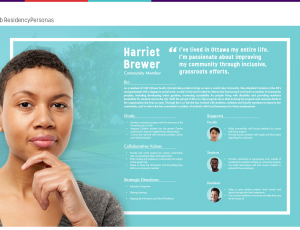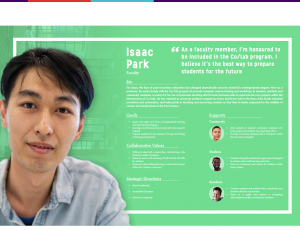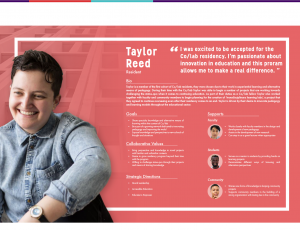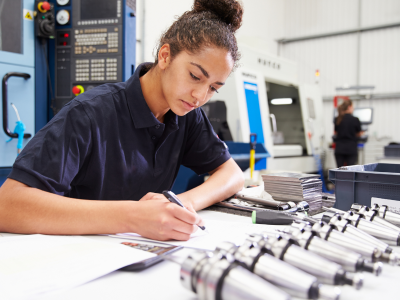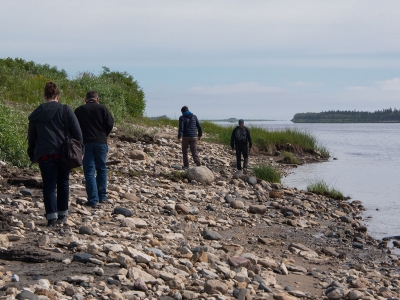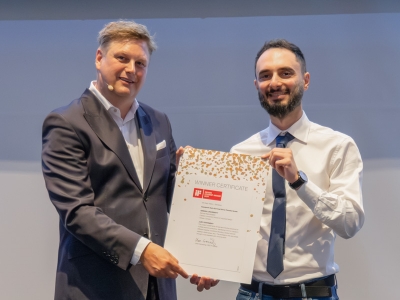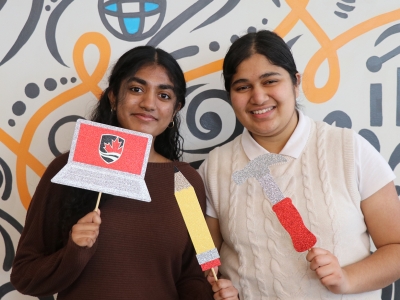By Joseph Mathieu
A team of graduate students from Carleton University have won a global workplace design competition.
Master of Design students Cathy Malcolm Edwards, Dawson Clark, Najeeba Ahmed and Ruzbeh Irani were announced as the winners of the 2021 Next Work Design Competition – Collaboration category on September 1.
The student group was the only Canadian team to be named among the competition’s top 20 finalists, which included international architects, designers and workplace strategists.
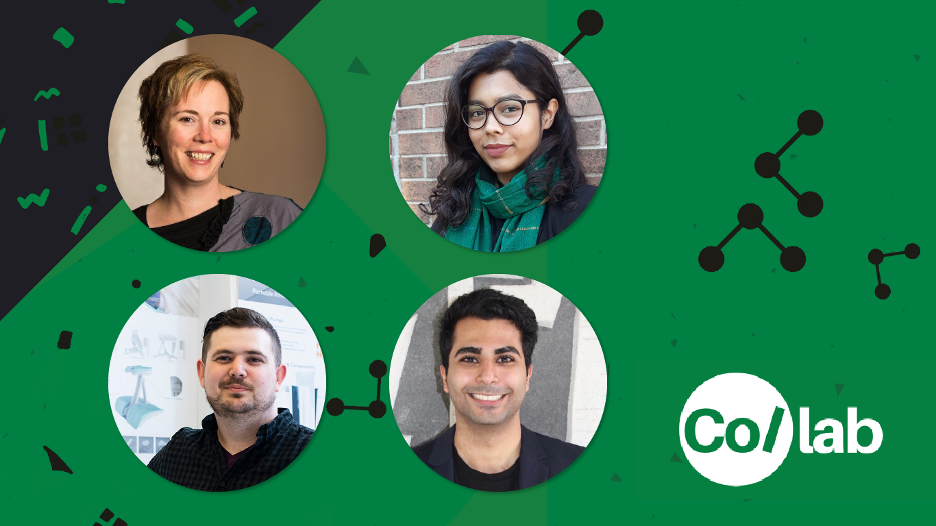
Clockwise from left: Co/lab members Cathy Malcolm Edwards, Najeeba Ahmed, Ruzbeh Irani and Dawson Clark
At the heart of their project is the creation of future scenarios that challenge the higher education sector and Carleton’s own strategic direction. As part of their design studio course, they conceptualized ways to contribute to the development of the university’s Strategic Integrated Plan (SIP).
They focused their work on the idea of “co-actualization”, a proposed innovative way to engage with the future that values people with different kinds of knowledge working together to solve problems. This led to the concept of seven strategic directions and of a residency program called Co/lab that could all usher Carleton into a healthy, bright future.
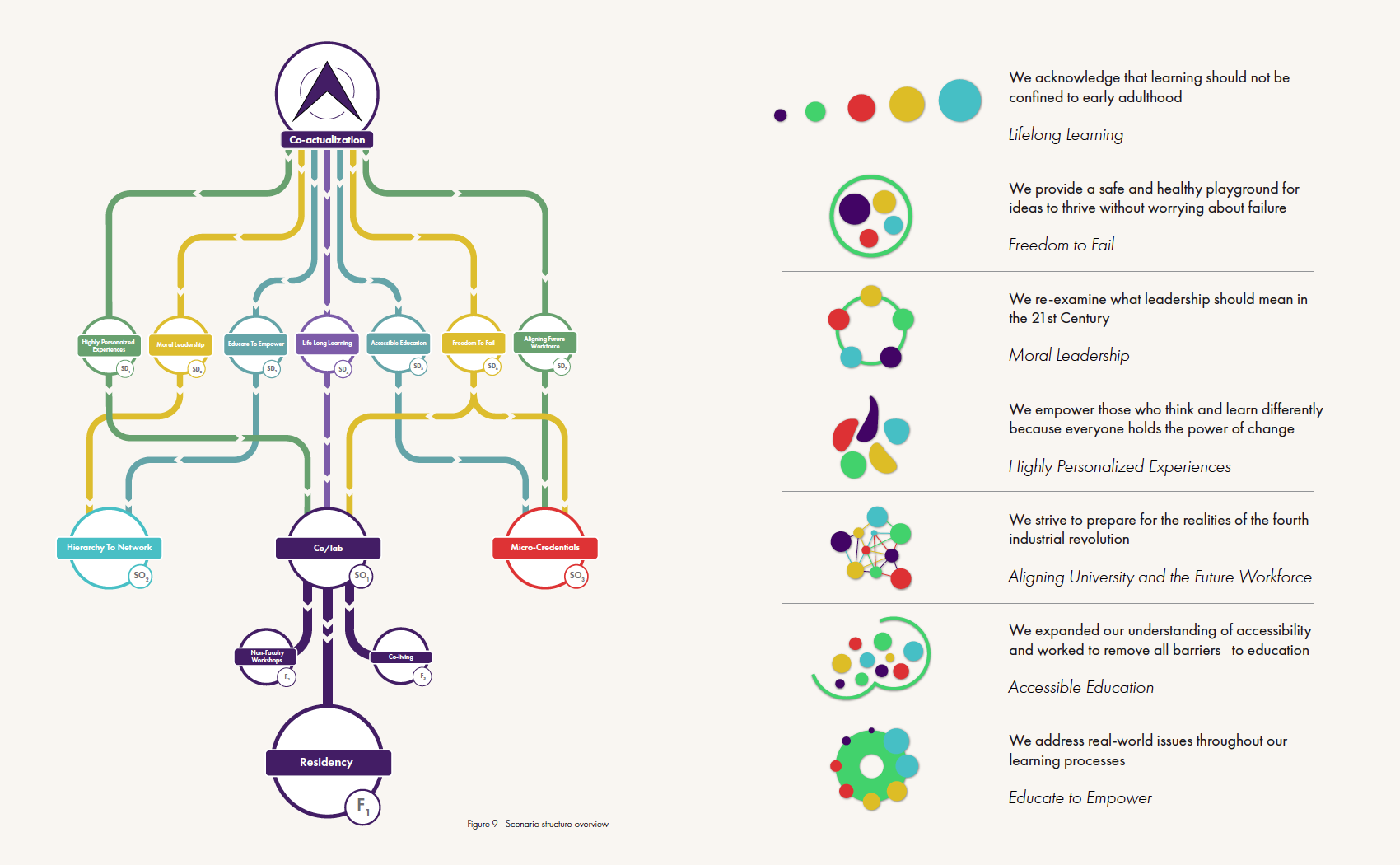
Malcolm Edwards, who also works with Carleton’s Research, Education, Accessibility and Design (READ) Initiative, appreciated the inclusive approach of the project.
“I think our team is really representative of what it means to be a team at Carleton,” she says.
“Learning about different cultures and their experiences can inform us and make us a better community.”
The project also conceptualized a residency program to help drive the evolution of the university to a more “co-actualized” space. Co/lab residents would help inform the future of education by exploring innovative means of pedagogy and considering how spaces on campus may be re-used for experiential learning, as well as expanding the residency’s network.
These strategic directions — which also included lifelong learning, the freedom to fail, moral leadership, highly personalized experiences, aligning the university to the future workforce, accessible education and education to empower — were integral in their win, according to the competition’s judges.
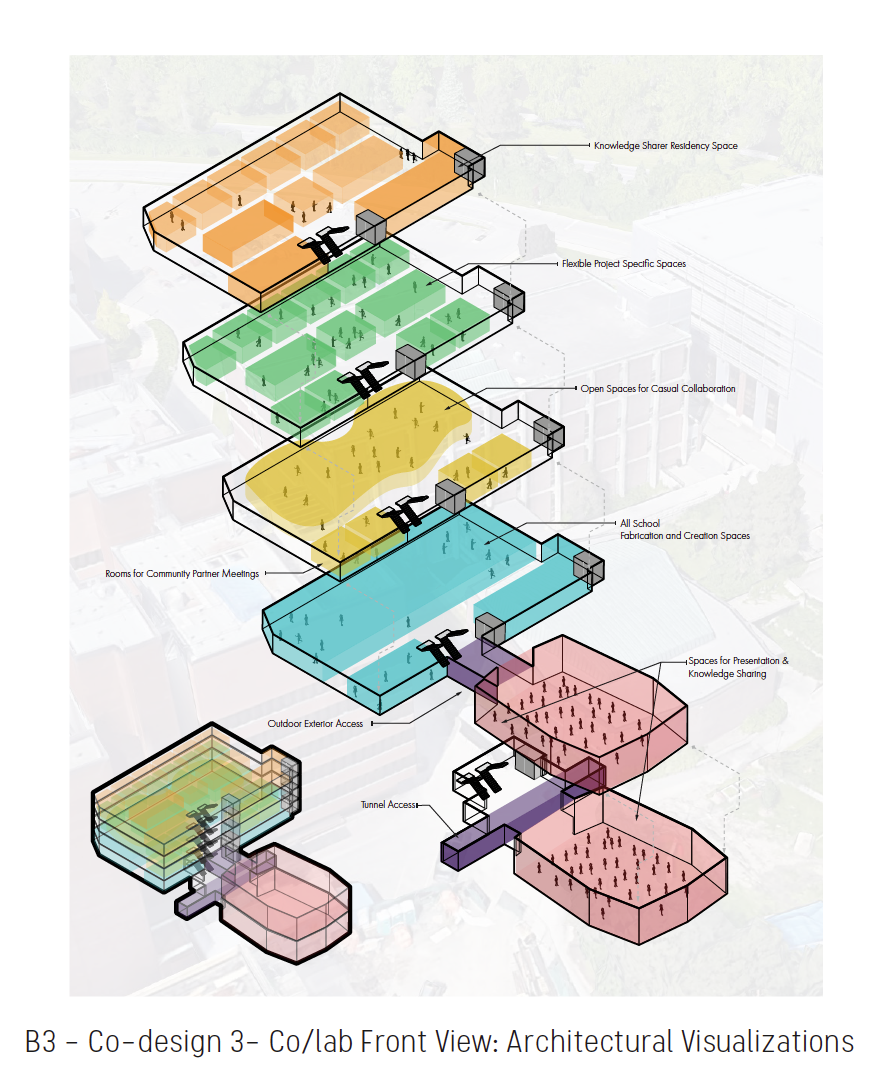
The team members, who are set to graduate from the School of Industrial Design in spring or fall 2022, all met in a design studio course, taught by Prof. Chiara Del Gaudio, during the 2020 winter term. Students had to apply design research methods to respond to both present and possible future challenges from an outside sponsor.
The external sponsor that winter term was the university’s Strategic Integrated Plan Task Force team, which launched the SIP in September 2020.
“I thought, let’s see what the students think about this,” says Del Gaudio. “It’s their university; it’s important for them to be a part of its future.”
Del Gaudio, who has taught undergraduate and graduate-level industrial design programs in Brazil, joined Carleton in July 2019. She began teaching the Master of Design studio course in January 2020.
“Usually what we do is try to find a local partner who has a specific need,” she says. “Students try to address it working collaboratively with this stakeholder and they have to share insights and request feedback.”
The class, before the pandemic began, had a chance to receive feedback from the SIP team. On Feb. 27, 2020, they also participated in the 6th Annual Community Campus Connections event which allowed the team to share their project — then titled “Envisioning 2030: Building Carleton’s Future with the Community” — with a variety of locals, Carleton community members and other students.
“One thing that’s very important in design is if it’s just your vision, it will not work,” says Del Gaudio.
“You need to understand what people want and start a dialogue. A design is not something that is put together on a laptop. It’s part of a larger society.”
The team’s Next Work Design Competition win was a surprise for Del Gaudio because, “I didn’t know they had applied! But I wasn’t surprised they won, because it was really, really good.”
Malcolm Edwards suggested the team apply to the Next Work Design Competition in late spring 2021. They had to synthesize a 54-page report into a one-page snapshot. They stripped it down to its co-actualization values and its Co/lab residency program.
“For myself, I feel honoured to have worked with my teammates,” says Malcolm Edwards. “This work really resonated with us. We’ve challenged each other, grown together and expanded our own thinking.”
Ahmed, who led artistic direction, found working with Del Gaudio very helpful in their overall complete project.
“Prof. Del Gaudio was a fantastic mentor,” she says. “She helped us to recognize that the classroom was a place to experiment, try new ideas and push the boundaries of different possibilities. With her encouragement and guidance, we expanded on this project beyond what we thought we would be capable of doing.
“I hope that this project can be an inspiration to others to think beyond what is possible.”
Until Sept. 24, anyone can vote in the 2021 Next Work Environment Competition’s People’s Choice Award.
Monday, September 20, 2021 in Competitions and Awards (External), Experiential Learning, Feature Stories, Graduate, Industrial Design
Share: Twitter, Facebook
